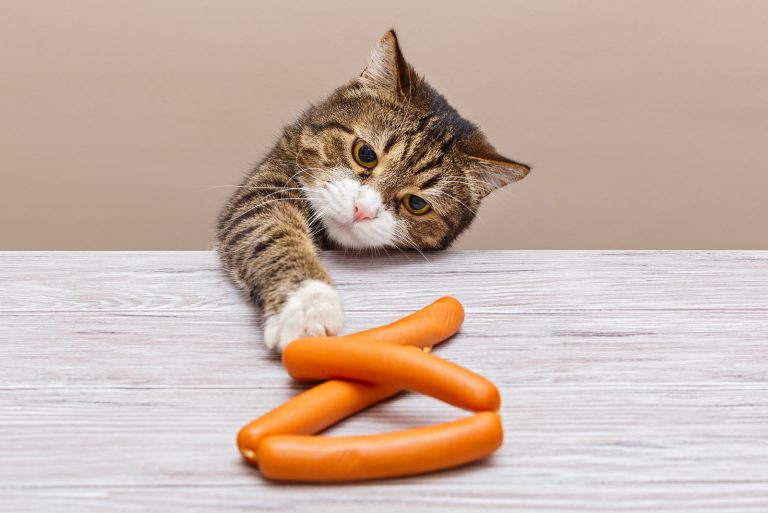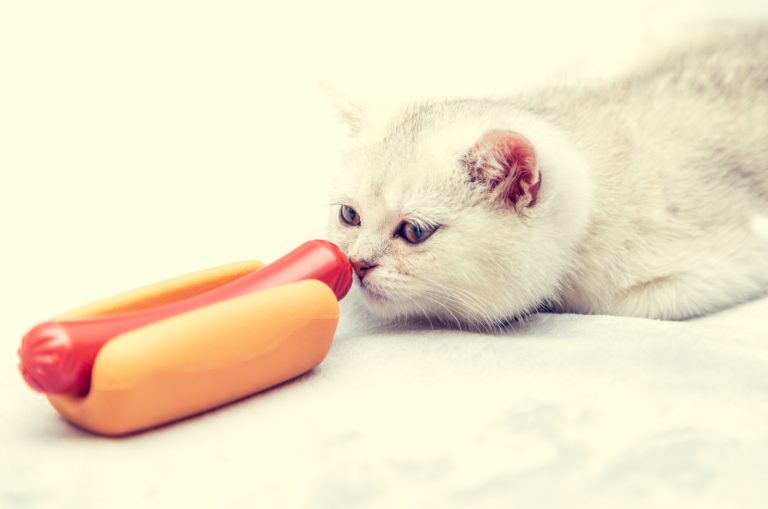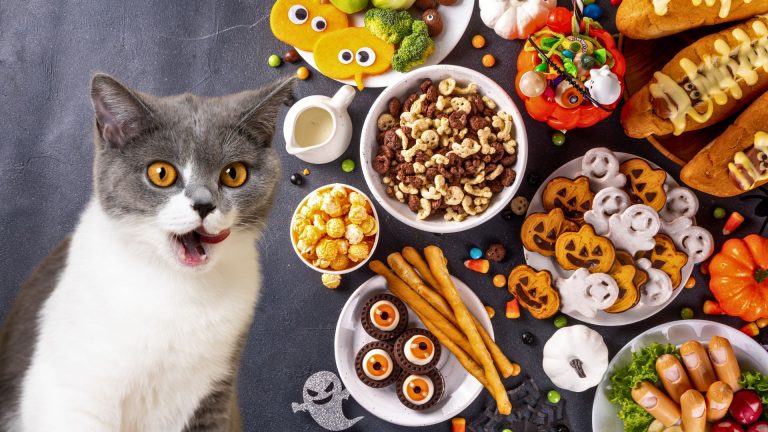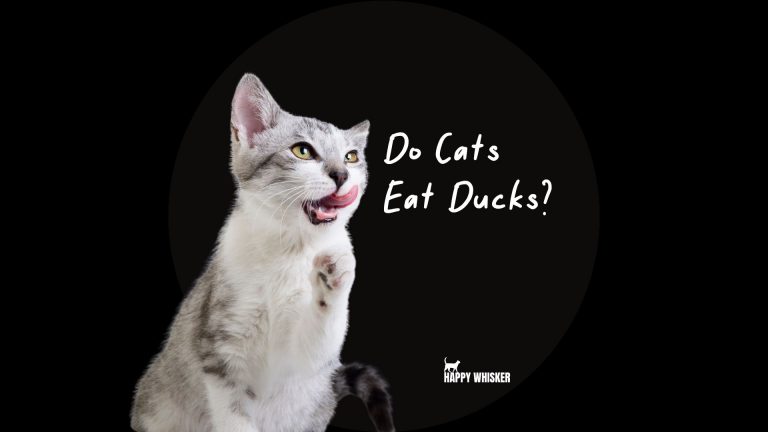How Long Can A Cat Go Without Food? What You Need To Know
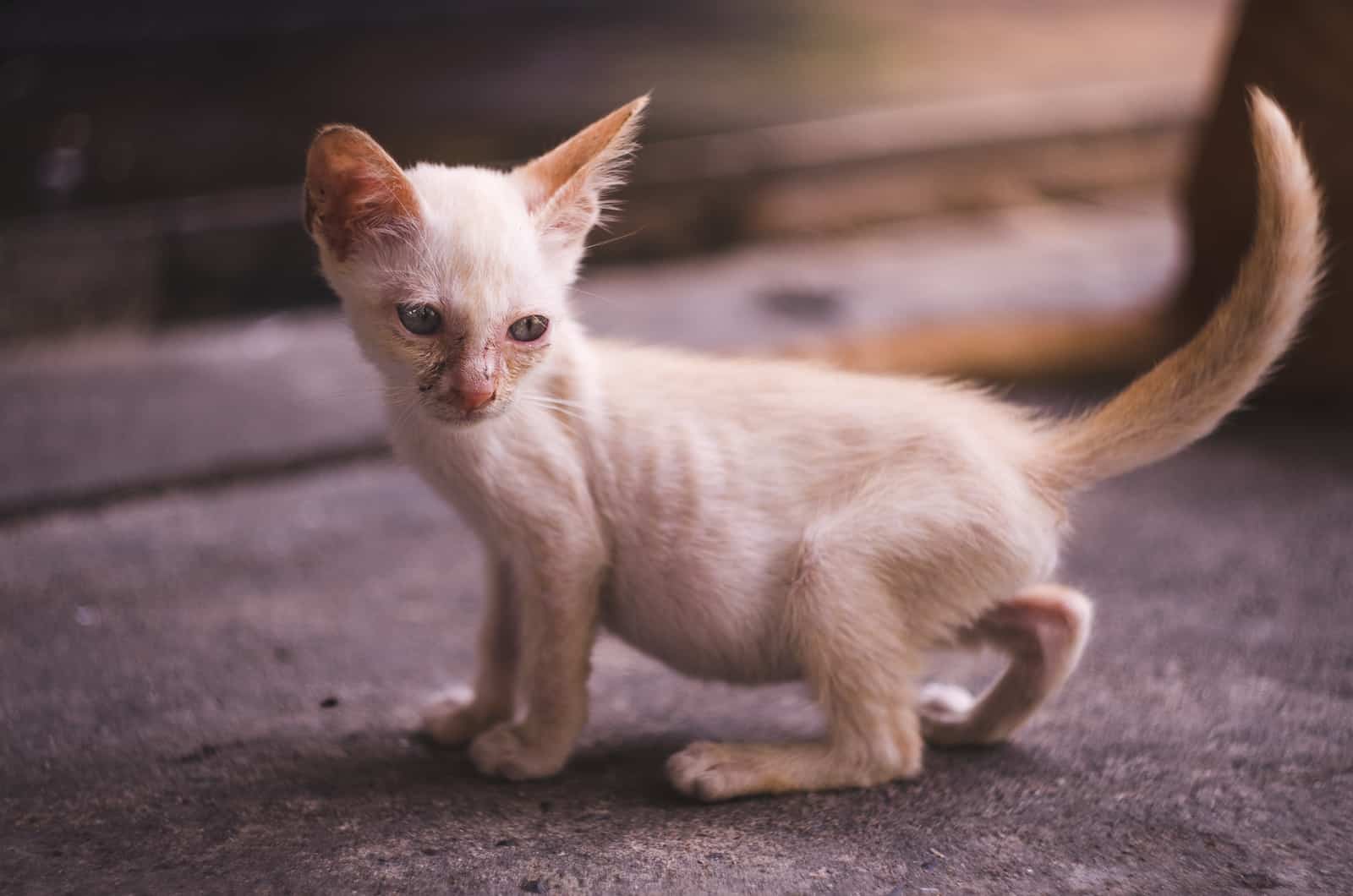
Every cat owner knows the struggle when a cat decides to be picky when it comes to food, especially spoiled ones.
Remember that cats are independent animals, and that some outdoor cats may even hunt their food and not eat when they get back home.
However, a cat’s diet is very important and sudden changes can be a worrying sign. We all know that when you notice sudden changes in your cat’s behavior, your cat may be trying to tell you that something is wrong.
This is why it is so important that you are familiar with your cat’s routine behavior and that you pay attention to any changes.
So, if you want to learn more about cats and their eating habits, read on and find out how long can a cat go without food!
How Long Can A Cat Go Without Food?
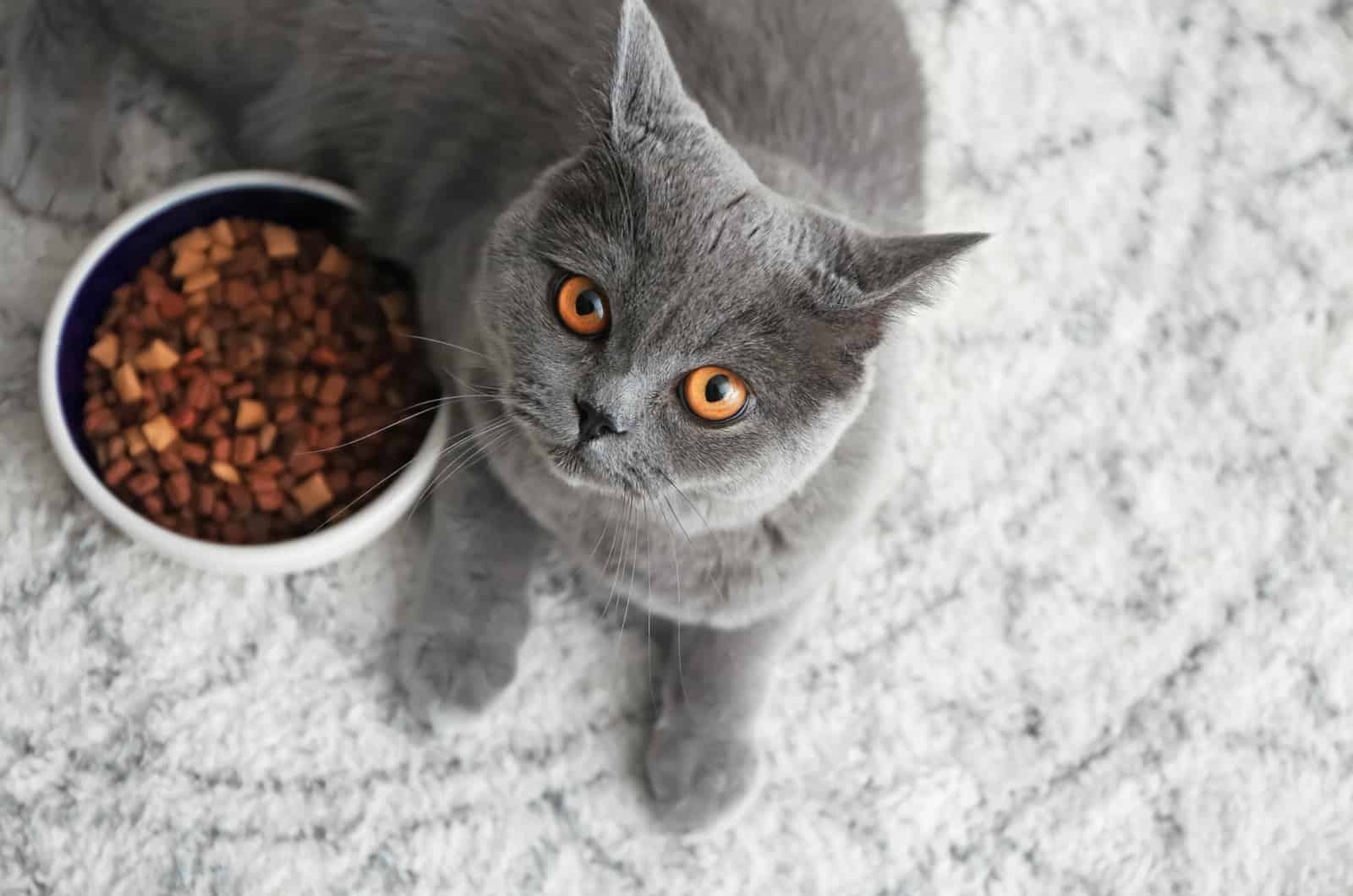
It’s very important to know how long can a cat go without eating and what a cat’s normal eating habits are, in order to recognize when something goes wrong.
Usually, cats can survive without food for one or two weeks, but only if they have water. If they have no water and food, they probably wouldn’t survive longer than 3 days.
Cats are obligate carnivores and a lack of proteins in their system may affect their survival. This means that with a water supply, but no food, and a low level of protein, your cat would probably die within a week.
However, cats usually don’t show their pain, and may hide if they are unwell. As a pet owner, you have to monitor their behavior carefully so that you can react before the situation becomes serious.
The most common reason for a cat not eating is, of course, illness. It is vital to find an underlying cause for a loss of appetite as soon as possible in order to save your feline friend.
How Long Is It Safe For A Cat Not To Eat?
The answer to this question is around 36 to 48 hours. If you notice that your cat is still not eating after 36 hours, then it’s time to visit the veterinarian to check on your furry friend and find the reason for her refusal to eat.
Cats may survive for a week or two without food if they have enough water, but without both water and food it’s unlikely she’ll survive longer than 3 days.
Without food, the cat’s body and immune system become weak and the cat will be vulnerable to various health issues.
So, it’s very important to find the reason behind your cat’s refusal to eat so you can prevent your cat from starving to death.
Can A Cat Go 48 Hours Without Food?
It won’t hurt your cat if she goes 48 hours without a food source. However, anything longer than this is a worry.
If your cat continues to starve after 48 hours, it’s important to take her to the vet and find the cause of the problem and possible solutions.
If she starts eating after 48 hours, everything’s okay. You can take your cat for a check-up for reassurance if you want. Also, make sure you give her small portions to avoid overindulgence. Ensure she stays hydrated too.
Suggested Read: How Long Can Kittens Go Without Food? Everything You Need To Know!
13 Reasons Why My Cat Won’t Eat!
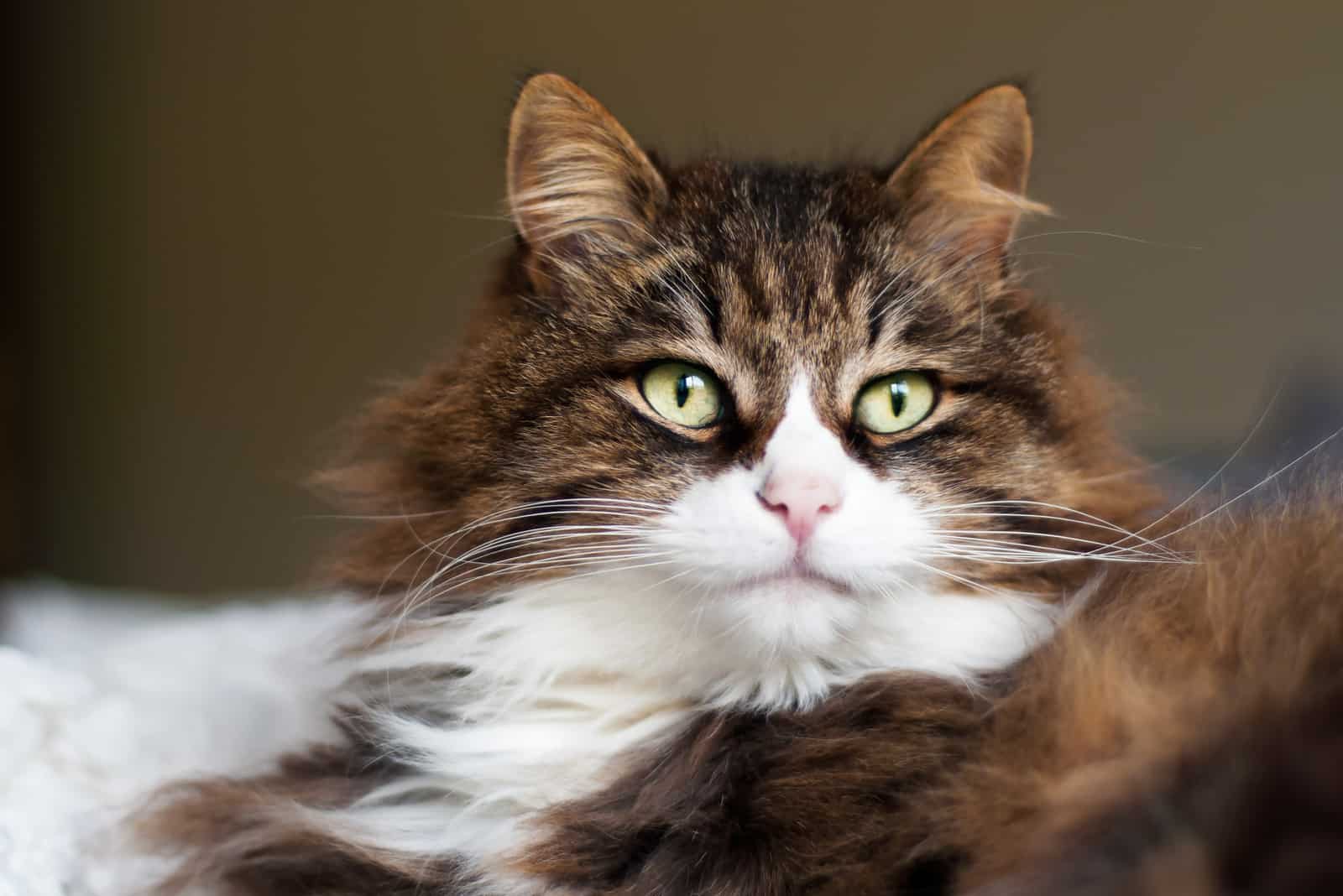
Now that you know how long can cats go without food, let’s take a look at some of the possible reasons why your cat won’t eat.
Usually, cats won’t eat due to health problems, but there are other less serious reasons for problems with a cat’s appetite.
• Cats may stop eating because of dental pain due to a broken tooth or similar.
This makes it hard for your cat to chew, therefore she doesn’t want to eat at all, especially dry kibble food. For more detail, check out an article about dental diseases in cats.
• Pancreatitis
Pancreatitis is very difficult to diagnose, but it’s important to mention because it may present with symptoms such as vomiting, diarrhea, weakness, and loss of appetite. It may also occur alongside diabetes or liver failures.
• Gastrointestinal issues may also affect a cat’s lack of appetite.
These issues also include parasites, cancer, and other gastrointestinal issues.
• Infections or injuries may cause your cat to experience symptoms such as vomiting, weakness, and high body temperature, all of which may lead to your cat not eating.
• Kidney disease is one of the main reasons for a cats’ starvation, and they’re highly prone to this disease.
The characteristic symptom of kidney issues is that a cat won’t be eating or drinking water, especially if they have progressed to the stage of kidney failure.
• Digestive issues may also cause a lack of appetite.
If a cat has problems digesting a particular food as it is causing her pain, she may choose not to eat at all rather than suffer.
• Recent vaccinations or the use of different medications may also influence your cat’s appetite.
However, if this is the underlying cause, you shouldn’t worry, because everything should go back to normal within a day or two. Of course, if the situation doesn’t change, then you should consult with the vet.
• Anxiety and stress can cause the loss of a cat’s appetite.
This may happen when you change your cat’s environment, or if you disrupt her routine. It may also happen as a result of separation from another animal with whom she used to get along. This can occur in both cats and dogs.
• Trauma is another reason why your cat may refuse food.
This may happen if she was recently disturbed or attacked by another cat or other animal while eating, resulting in them feeling vulnerable while eating. To learn more, I suggest reading about the signs of a traumatized cat.
• Lack of appetite may also be due to a slower metabolism, which is usual for older cats.
• Maybe your cat won’t eat because you are offering her new food which she doesn’t like, especially if you have changed from wet to dry food.
This may be especially true for cats that are a little bit spoiled. For example, my grandma’s cat eats only one particular canned food and won’t eat any other.
• Your cat won’t eat because of a dirty food bowl.
This is also especially true for spoiled cats. If your cat is fussy about eating, it’s very important that the food bowl is always clean and that you always feed your cat at the same time, because there are cats who won’t eat food that has been out in the bowl for too long.
• If you have an outdoor cat, maybe she’s not hungry because she caught her meal earlier.
Outdoor cats often like to chase and catch their own food. Others may visit a sympathetic neighbor for a sneaky meal. Maybe your cat is eating, just not at home!
So, these are possible reasons why your cat won’t eat.
Remember, it’s very important that you notice any changes to your cat’s feeding routine and take your cat to the vet quickly. Even minor problems can progress into more serious problems within a day or two.
For example, not eating and not drinking may lead to a problem called hepatic lipidosis, or fatty liver syndrome.
This happens when the cat’s body doesn’t receive enough protein and it causes cats’ livers to fail. This can be deadly for your feline if not treated properly and in good time.
Also, a period without food may lead to weight loss, and if this continues, your cat may develop anorexia which is very serious.
An eating disorder like anorexia may be very difficult to recover from. So, pay attention to your cat’s health carefully, and seek professional advice from a veterinarian if you are concerned.
Suggested: My Cat Is So Skinny I Can Feel Her Bones – What Should I Do?
Can Cats Starve Themselves To Death?
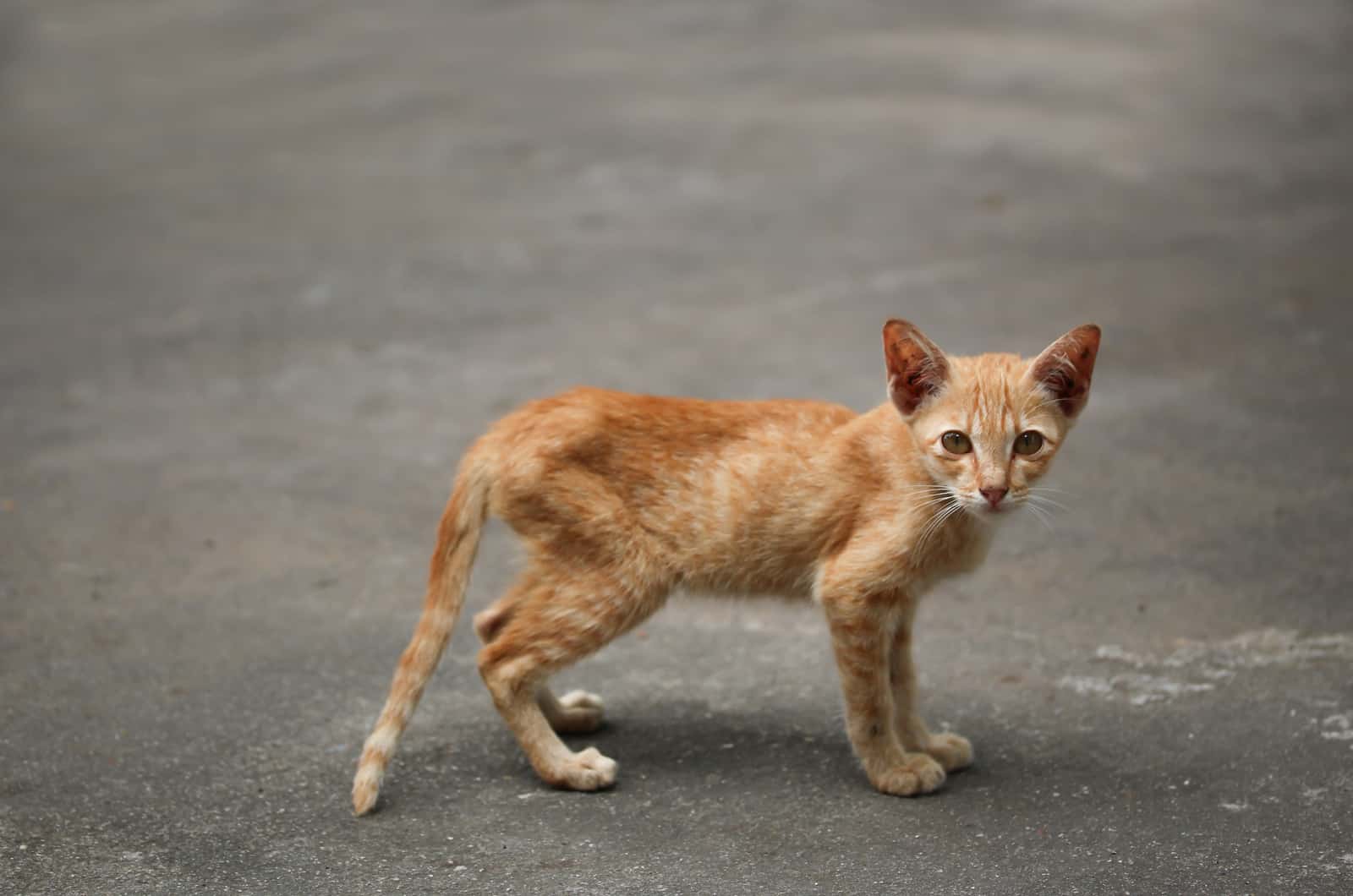
Now you know how long can a cat go without food, you might wonder can cats starve themselves to death?
Even though cats have survival instincts, the answer is yes, cats can starve themselves to death, especially if they’re in great pain.
Some cats may starve themselves unintentionally. Some cats may change their minds after a day or two and start eating anything they can find.
When a cat needs energy that she isn’t getting from eating, she eventually gets it from her fat stores. So, a cat uses its fat reserves in order to survive without eating.
However, this won’t last long, because with time, and without proper energy from food, the cat’s organs begin to shut down, leading eventually to death.
What Are The Side Effects Of Starvation In Cats?
Side effects of starvation in cats may be really serious. When a cat stops eating, she may suffer from liver failure, also called hepatic lipidosis, which happens more quickly in cats than in humans.
Without eating, cats lose weight. Extreme weight loss may lead to complete anorexia which eventually affects the cat’s immune system. Ongoing malnutrition may cause other vital processes and organs to shut down.
Either way, there are many side effects of starvation in cats and all of them lead to the same outcome and, sadly, that is usually death.
Cats can survive near-starvation with appropriate care but there is always the possibility of future consequences for the cat’s health and wellbeing.
What Should You Do If A Cat Is Starving?
If you find a starving or sick cat, you should be really careful with her. First things first, it is best if you can take the cat to the veterinarian for a medical check.
The vet should check your cat carefully to diagnose any possible health issues. Rehydration via an infusion is a possibility.
He may also give her some vitamins along with fluids and any other treatments for any health problem she has. He may also give you advice on how best to feed the cat.
What Is The Best Way To Feed A Cat That Is Starving?
The best thing to do is to feed the cat little and often. This means giving the cat small portions of warm, cooked wet cat food made from chicken or fish at least 5 times a day.
It’s very important that the cat doesn’t eat too much food at once as this would be a sudden shock to her system and may make her sick.
Also, always ensure that her water bowls are always filled with clean and fresh water and that they are always available.
You and your family members should monitor the cat all the time until she fully recovers, just to be sure that there aren’t any complications.
Suggested Read: Top 5 Choices Of Homemade Cat Food To Gain Weight
What Are The Signs Of A Cat Dying?
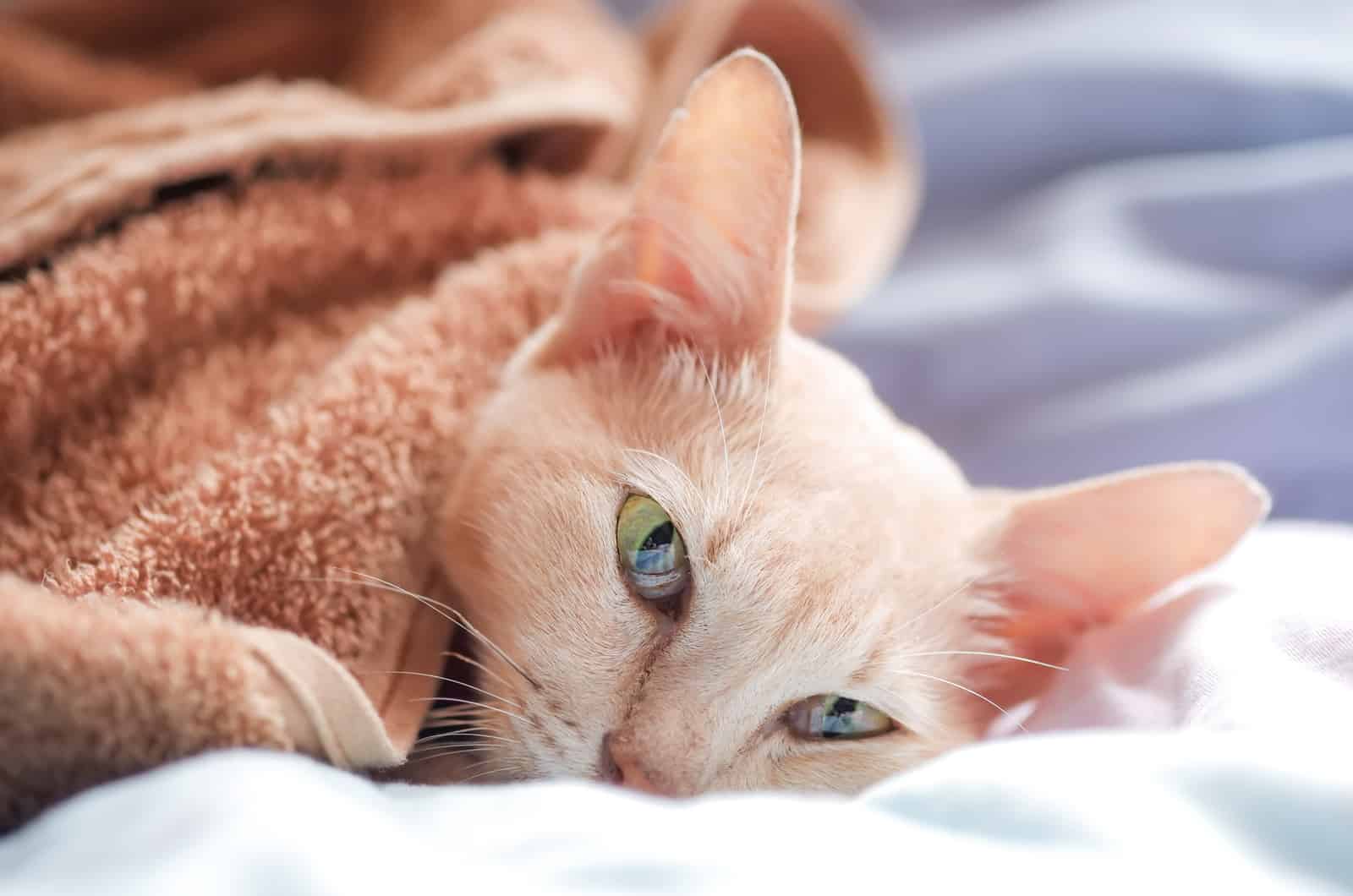
I believe that every pet parent wants to be prepared for this inevitable, but incredibly hard moment, so here are the 8 main signs of a cat dying:
• Low body temperature
• Behavior changes
• Weight loss
• Weakness
• Sleeping all the time
• Lack of interest in anything
• Frequent hiding (if it’s an indoor cat) / disappearing often (if it’s an outdoor cat)
To learn more about what to do if your cat is dying, I suggest reading: Should I Leave My Dying Cat Alone? A Helpful Guide
To Wrap It Up
To wrap it up, how long can a cat go without food? There’s no correct answer, because it depends on the cat and its health. However, cats can usually survive without food for a week or two, but only if they have a water source.
However, if there’s no food or water, cats won’t survive longer than 3 days. Cats are obligate carnivores and if their body doesn’t receive enough protein, they may die within a week or less.
To avoid that, it’s highly important you consult with your veterinarian if you notice your cat is not eating food.
The causes may vary in severity. You can try switching the food, introducing a new food or trying to tempt her with a treat.
If your cat’s still not eating, then a vet check is essential if you want your cat to be happy and healthy.
Cats may starve themselves to death unintentionally, so if you find a starving cat, be very careful with it and do your best to help her survive!

